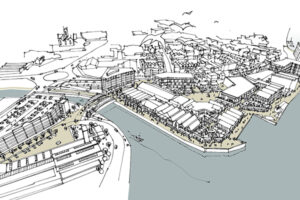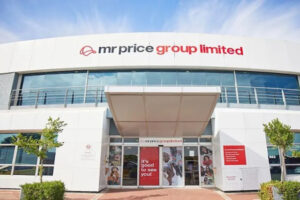BY NEIL HOCKIN
A shift in retail requirements and the need to introduce complementary leisure and catering uses leaves many landlords striving to strike a difficult balance. Although some proposed developments are hard to justify, they may maximize returns. The development market is a lumbering dinosaur compared to the speed of change in the retail market. This does not reflect the skill of the industry, but rather the constraints of dealing with appraisals, planning, consultation, construction, and fit-outs.
We have learned that second-guessing retailers’ needs is a fool’s game – not they understand where technology is going. We can build more flexible spaces and leases, but this will take compromise. Landlords need to shoulder risk and retailers to be more accommodating. In a faster-paced market, both parties should be able to decide whether a location is relevant in the future or whether a brand is still in keeping with demand.
The term “shopping center” is a misnomer; these temples to consumerism provide more than a shopping experience. The key is not delivering “better” shopping centers, but creating relevant spaces. Shopping center landlords need to look at alternative uses that add little to the coffers in the short term, but create a point of difference in the long term. The challenge is to provide non-retail uses by increasing leisure. This creates a sense of place and provides a community hub, which is important. Engaging with retailers to promote interactive experiences also adds value, HMV organized 250 personal appearances across 2013 to tempt younger audiences. It won’t be long until other draws are included – the next tranche of museums and IT emporiums is just round the corner.
Local government can also help with mixed-use town centers. Local authorities should be encouraged to base staff in town centers and central government must follow suit. The London market is strong, what better time to look at decamping some government departments to smaller towns in need of economic resurgence? The BBC has set a fine example in Salford, others should follow. Wholesale development projects can be slow, with high upfront costs and unpredictable profits. However, retail and leisure remain key to town center regeneration. We are already seeing proactive local authorities drive forward development initiatives where private developers have failed. Newport City Council (Queensberry) is building the 36,000-sq-m Friars Walk, due to open in 2015; Chester appointed Rivington Land to help unlock Northgate; and Sheffield took charge of developing its new retail quarter. With local authorities actively involved in the development process (and possibly financing), viability can be considered holistically and in the context of social gain and economic growth.
The one-size-fits-all solution to asset management and development has never worked. We need to be sympathetic to the unique nature of all retail assets and understand what consumers want. After all, it’s their money that makes or breaks all financial models.
What is your opinion on this topic? Discuss it with us! Send your opinion to opinion@across-magazine.com !






